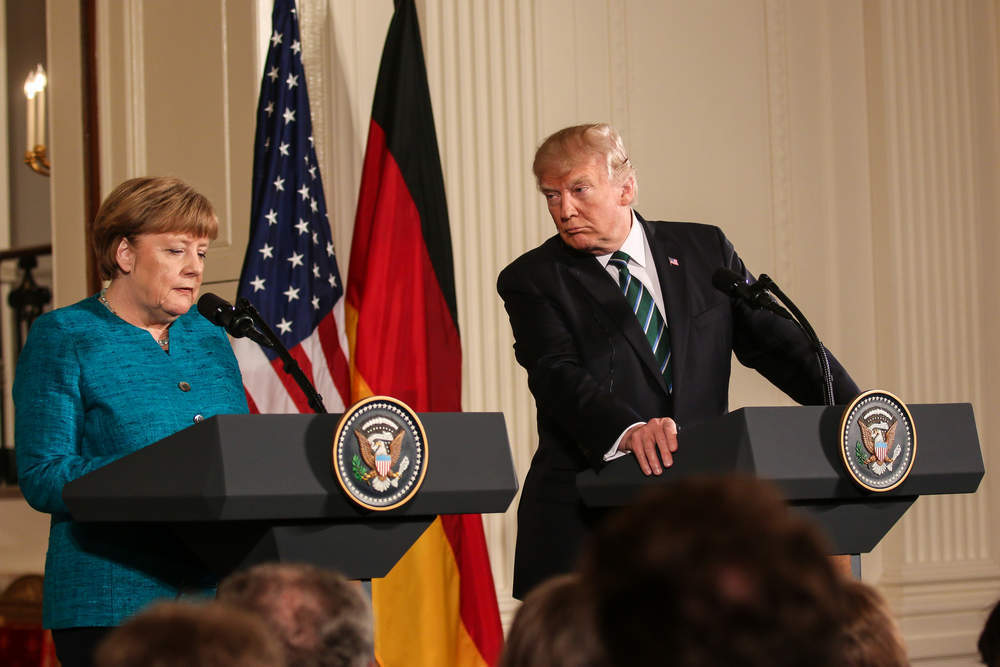
A looming trade war between the EU and the US will be at the centre of talks when German Chancellor Angela Merkel arrives in Washington today for her second meeting with US President Trump at the Oval office.
Merkel is expected to pressure Trump to reverse his isolationist policies and secure a permanent exemption for European Union countries from a set of trade tariffs first announced by Trump in March — due to take affect from 1 May.
Citing government sources, German news agency DPA yesterday said the Trump administration’s plans to impose a 25% tariff on steel and 10% on aluminium imports to the US would likely come into effect on 1 May.
Speaking to the Koelner Stadt-Anzeiger newspaper the coordinator for transatlantic cooperation in the German Foreign Office Peter Beyer warned that Merkel had a better chance of success if she enlisted French President Emmanuel Macron for trade negotiations with Trump.
Beyer said:
Macron is closer to Trump on a personal level.
Macron wrapped up a three-day formal state visit to Washington yesterday, replete with mutual gestures from both sides reinforcing their budding so-called bro-mance.
In a far cry from the multi-day pomp and circumstance rolled out for Macron’s visit, Merkel will only get two hours with Trump.
A measly 20 minute tête-à-tête is pencilled in before a 90-minute working lunch. Next on the schedule is a 30-minute press conference.
Merkel is also expected to continue the push started by Macron to try to get Trump to stay in the Iran nuclear deal.
Trump has threatened to pull out of the Iran pact by 12 May unless its scope is expanded to address Tehran’s widening regional influence and ballistic missile arsenal.
Merkel is also expected to come under pressure from Trump to boost German defence spending to meet Nato targets.
Europe’s biggest economy currently falls far behind Nato guidelines for member states spending 2% of GDP on defence. Berlin spent just 1.1% last year.
Although Merkel pledges to increase its defence budget to €42.4 billion by 2021, from €37 billion last year, the pace of economic growth would still only bring defence spending to 1.15% of GDP.
On the heels of the visit, the head of the German armed forces association Andre Wüstner complained to German media that the nation’s under funded defence was a threat to national security.
In an interview with Welt newspaper, he called for a €15 billion increase in spending by 2021, and said a failure to do so could cause “incalculable consequences for our security”.
In another interview this week a high-ranking US trade official signalled the US would be open to concessions with the EU on trade.
In an interview with CNBC, White House adviser and national economic council Director Larry Kudlow said:
It’s very important that some of our friends make some concessions with respect to trading practices, tariffs and taxes.
Merkel last visited Trump in March 2017.







